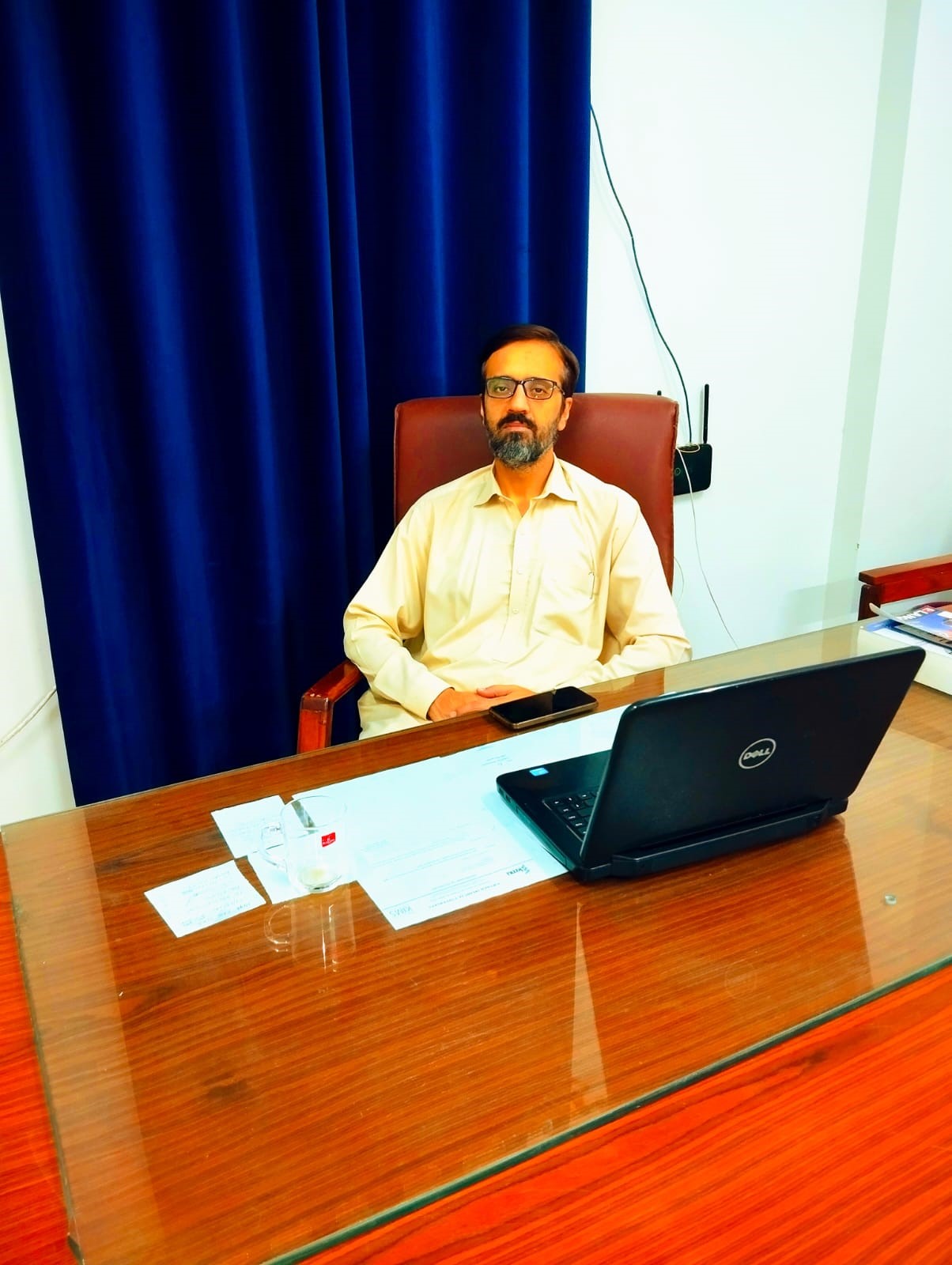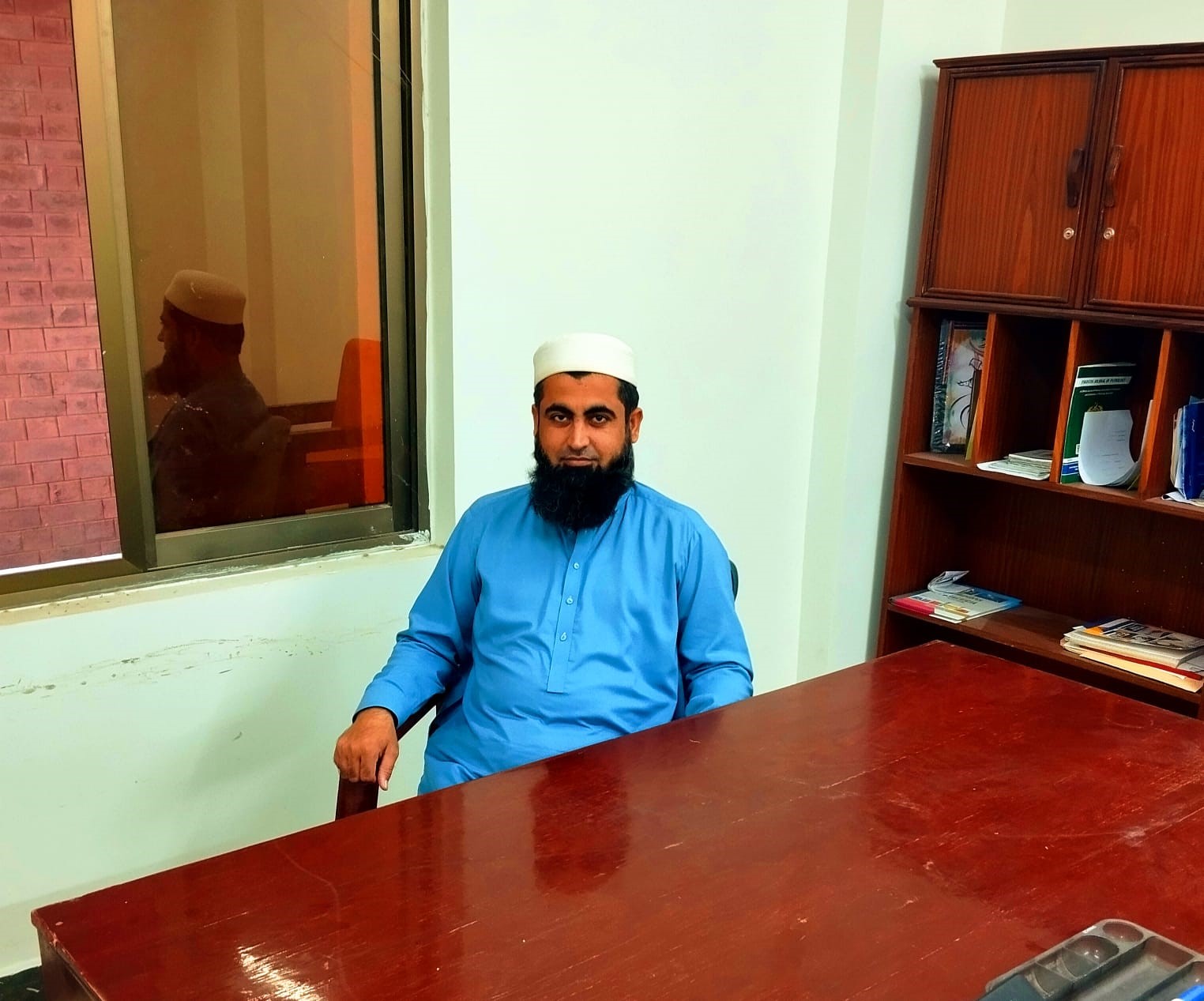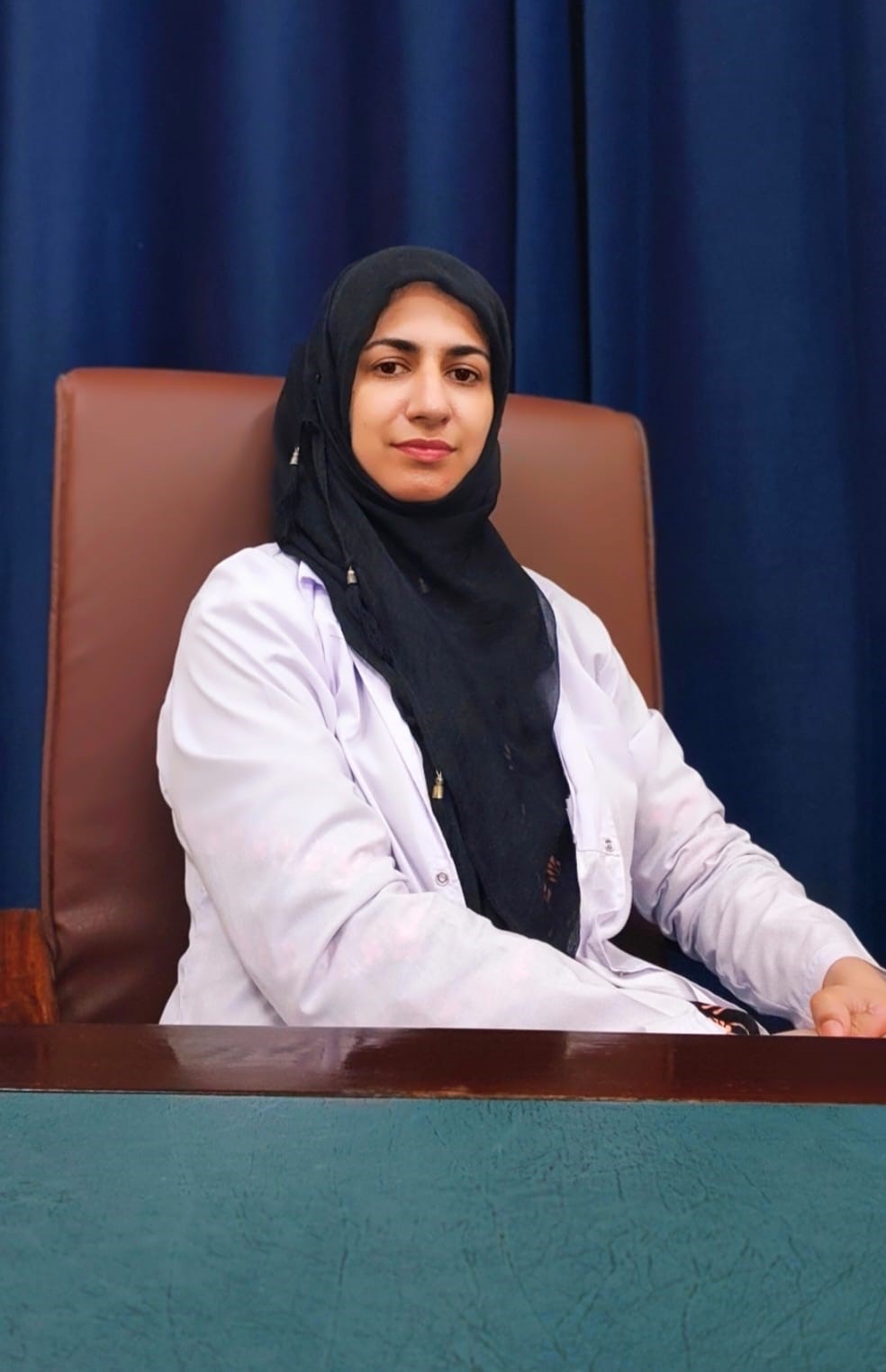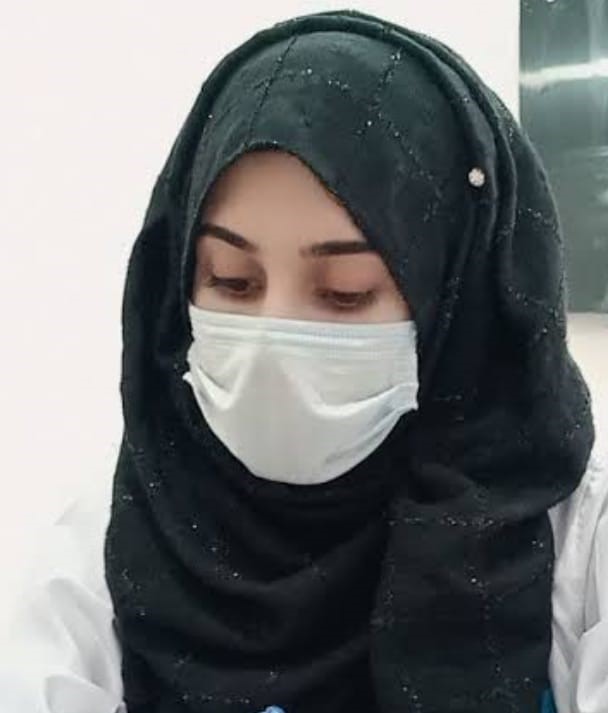
KMU INSTITUTE OF MEDICAL SCIENCES KOHAT



To be a center of excellence in pathology education, fostering deep scientific understanding, critical thinking, and a passion for lifelong learning among undergraduate medical students. We aspire to bridge the gap between basic sciences and clinical practice, cultivating future healthcare professionals who are well-grounded in the principles of disease mechanisms, diagnostics, and research.
• To deliver high-quality, student-centered education in pathology that integrates theoretical knowledge with practical skills. • To promote a thorough understanding of the pathogenesis, morphological features, and clinical correlations of diseases. • To utilize innovative teaching methods, including interactive lectures, microscopy, case-based discussions, and laboratory sessions. • To foster ethical values, scientific curiosity, and analytical thinking in students. • To collaborate with clinical departments to enhance interdisciplinary learning and application of pathology in clinical settings. • To contribute to the academic and professional growth of students by encouraging participation in research, seminars, and academic forums.
It gives me great pleasure to welcome you to the Department of Pathology at KMU- Institute of Medical sciences. As a vital bridge between basic and clinical sciences, pathology plays a foundational role in medical education. Our department is committed to nurturing a deep understanding of disease mechanisms, diagnostic processes, and their clinical relevance among undergraduate medical students. We strive to create a dynamic learning environment that combines traditional methods with innovative teaching strategies. Through lectures, practical sessions, microscopy, case-based discussions, and integration with clinical cases, we aim to make the subject both engaging and clinically meaningful. Our faculty members are not only experienced educators but also passionate mentors, dedicated to guiding students in their academic journey and professional development. In addition to teaching, the department is actively involved in diagnostic services and research, providing students with exposure to real-world applications of pathology. We encourage curiosity, critical thinking, and ethical practice, shaping future doctors who are not only knowledgeable but also compassionate and competent. I invite you to explore our department and join us in our mission to inspire learning, discovery, and service in the ever-evolving field of medicine. Warm regards, Dr. Tahira Atta Head, Department of Pathology KMU-IMS Ab
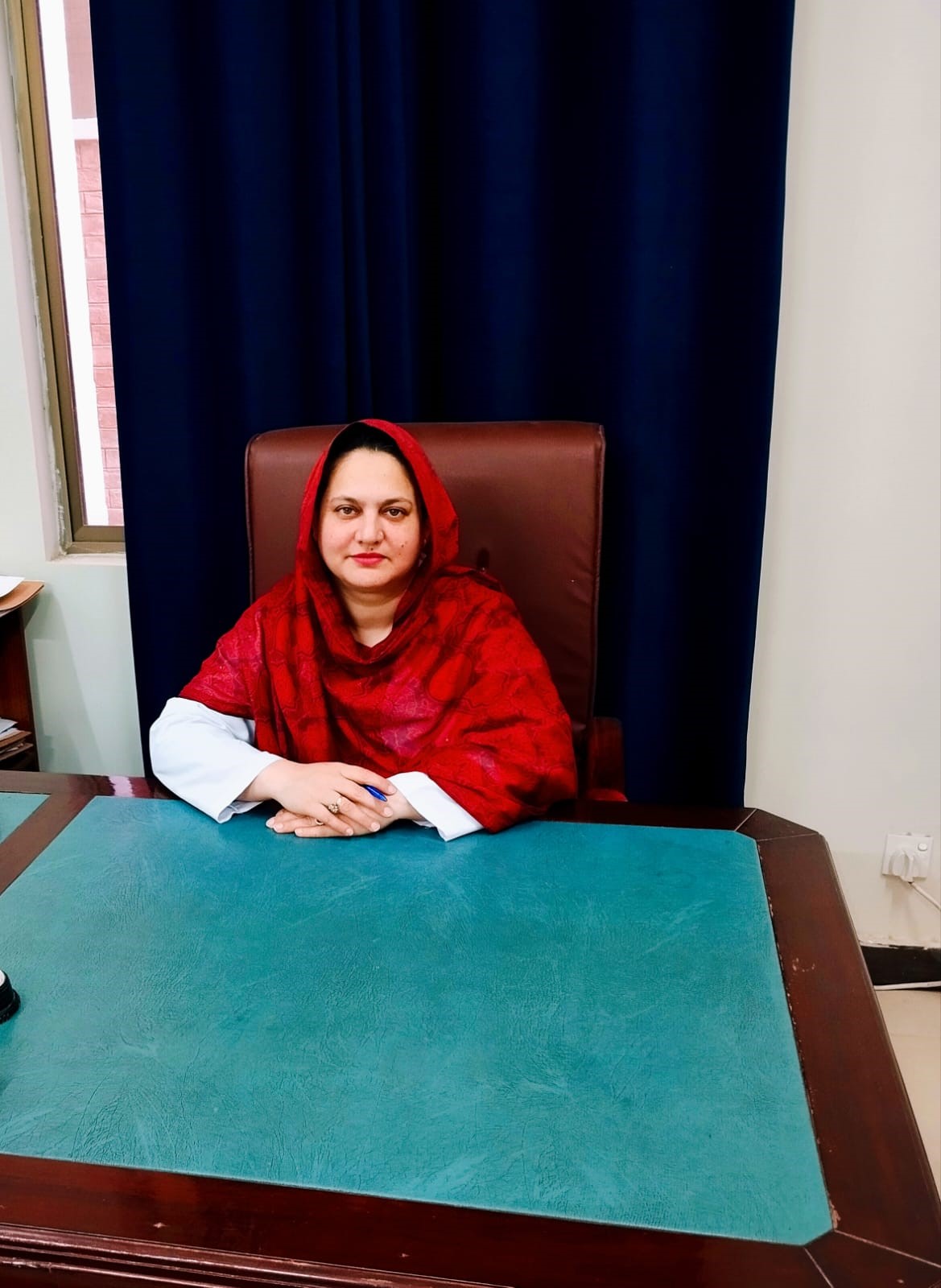
The Department of Pathology plays a pivotal role in undergraduate medical education by bridging basic sciences with clinical application. Our department is dedicated to providing students with a comprehensive understanding of disease mechanisms through both theoretical instruction and practical exposure. We are well-equipped with state-of-the-art facilities designed to support high-quality teaching, hands-on training, and diagnostic services: • Teaching Laboratories: Spacious and well-ventilated laboratories equipped with modern microscopes and relevant teaching materials allow students to develop essential skills in identifying histological and hematological features of diseases. • Demonstration Rooms: Our department has designated demonstration rooms fitted with projectors to facilitate interactive small-group teaching, case-based discussions, and tutorial sessions. • Histopathology Processing unit: The department houses a dedicated tissue processing unit with microtomes, embedding stations, and staining equipment to prepare histological slides, offering students practical insight into specimen handling and diagnosis. • Faculty Offices: Well-furnished and organized faculty offices provide space for academic work, student mentoring, and departmental coordination. The department prides itself on a team of experienced, approachable faculty members committed to academic excellence.
The Department of Pathology plays a central role in the undergraduate medical curriculum, as outlined by the Pakistan Medical and Dental Council (PMDC). We follow a modular, integrated teaching system, ensuring that students are exposed to the essential foundations of pathology throughout their medical education — from first year to fourth year. Our course is meticulously designed to align with the learning objectives set by PMDC. It is structured to promote vertical and horizontal integration with other basic and clinical sciences, ensuring that students gain both theoretical knowledge and practical relevance. Key Features of the Course: • Progressive Learning: Pathology is introduced in a phased manner across the years, beginning with basic concepts in early modules and advancing to detailed diagnostic and clinical correlations in later years. • Subject Coverage: All major branches of pathology are comprehensively covered: o Microbiology – Bacteriology, virology, parasitology, and mycology, focusing on the identification, pathogenesis, and control of infectious diseases. o Hematology – Covering normal and abnormal blood physiology, blood disorders, and diagnostic techniques.
